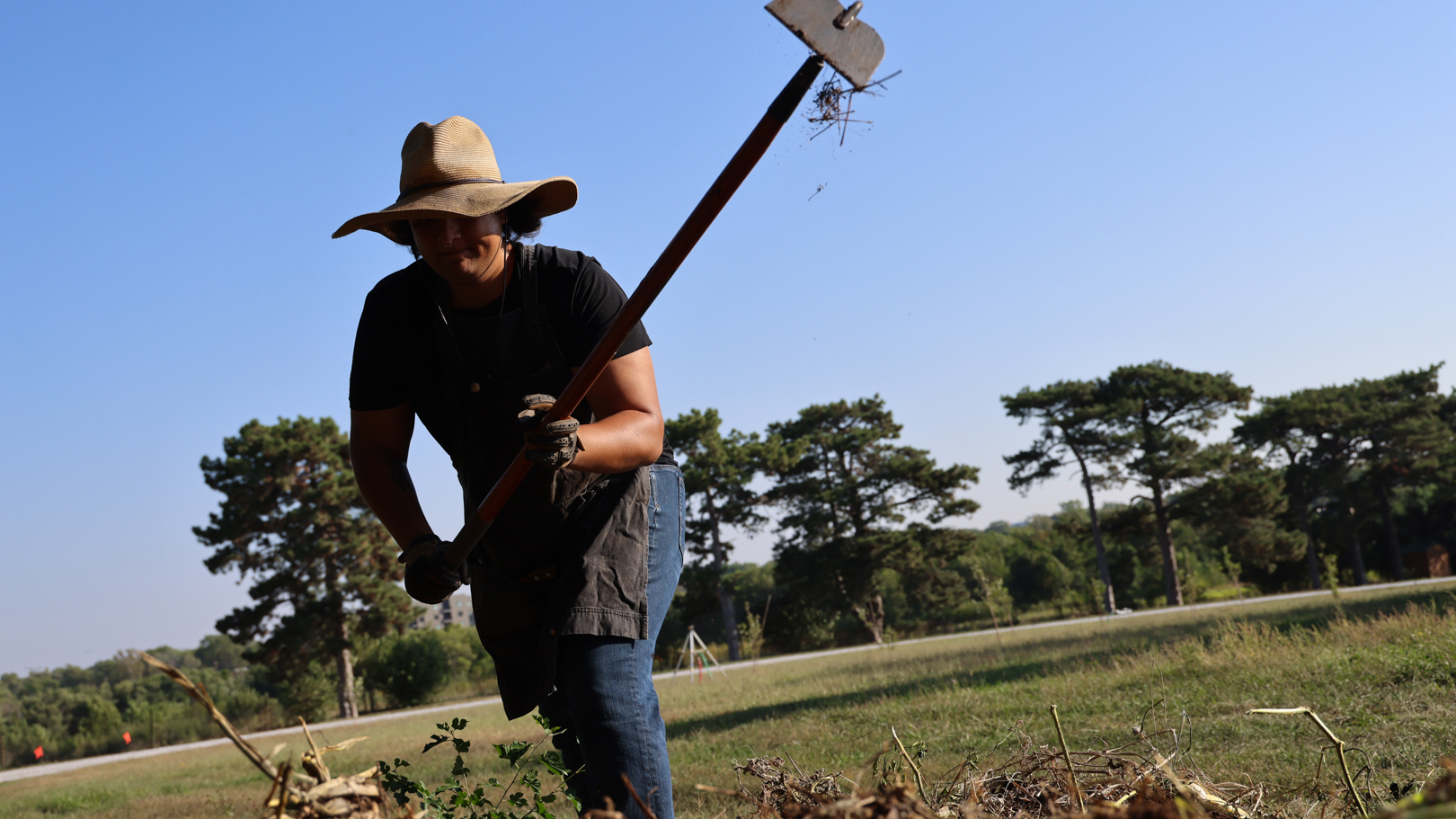
On an early fall morning, dozens of Native American middle and high school students gather to harvest their garden and prepare it for winter. But these children are not farmers. They live in Lincoln and come to East Campus every Saturday as part of the Indigenous Youth Food Sovereignty Program at the University of Nebraska-Lincoln.
While the majority of Nebraska communities are centered around agriculture, many students in the Lincoln and Omaha urban areas feel no connection to the land or the sources of their food. This connection is not just a tradition for Native tribal members, it is part of their culture, said Ted Hebeler, an educator with the Nebraska Rural Prosperity Extension Program and statewide Indigenous engagement coordinator who leads the program.
“We wanted to get Native American youth in Lincoln involved in growing their own food for their communities to create some kind of healthy food sustainability,” said Hebeler, a member of the Rosebud Sioux Tribe. “We want to reconnect them with their connection to the land and plants that we have traditionally had.”
The program began two years ago and has since grown to include 25 students from Lincoln Public Schools, ranging from seventh graders to high school sophomores. Twenty students have already registered for next year, ready to learn not only about their cultural heritage but also the modern science of food production.
“We have (experts) from the College of Agricultural Sciences and Natural Resources coming in and offering their expertise on the Western scientific part of plant farming,” Hebeler said. “Then, indigenous elders come and talk to these young people about their traditional relationships with the land and the plants. So they get both views of the world.”
Lizzie Casas joined the program when she was young, and even though she graduated high school last May, she still comes to the park because she values learning about her ancestors.
“We’re always learning how to introduce ourselves,” she said. “I’m Rosebud Lakota. They teach us how to make our food or how people did it back then, or how it was for a long time.
Casas said she enjoys the community that comes out of the program. On Saturday mornings, parents and younger siblings often come by to lend a hand. Casas sees a real need for the work she and her classmates are doing.
“It gives us an opportunity to provide food to people,” she said. “At the last show, a lot of people were excited when we said, ‘Yes, there are free products.’ They were happy about that.”
In the community garden, students don’t just weed and pick produce. In addition to the $500 quarterly stipend they receive, they also learn to maintain a healthy garden and preserve the food they grow. Students are allowed to take food home for themselves and their families, but they produce more than they can consume. At the event attended by powwow Casas, students donated 300 pounds of produce. Recently, Timothy Thelen, program coordinator, donated an additional 300 pounds of peppers to the Food Bank of Lincoln.
Thielen, who comes from a religious background, graduated from the University of Nebraska in 2020. He is currently working on his master’s degree in entomology and serves as the program coordinator.
“I ended up loving working with these students and kind of exploring my own Indigenous background,” he said. “I really care about the community here.”
The societal impact is expected to grow. This year, the university’s Department of Agronomy and Horticulture donated a greenhouse to the program so participants can grow food year-round. The hope is that they can start venturing into farmers markets, providing students with another skill they can take with them after graduation.
“It’s not just about teaching them how to grow food,” Thelen said. “This is a place where we can watch them and make sure they’re safe, but also let them experience a little bit of what they don’t have access to — nature. So we’re teaching them not only how to feed themselves, but also feed their community, and hopefully take care of it as well. For me, “This is very natural, as everyone sticks together and benefits from the land given to us.”
While the program teaches practical information and gardening practices, no gathering or outing is complete without Hibler or a tribal elder helping students explore their ancestors.
“If we get more involved in caring for this land and reap what the land gives us, we will walk through this world in a healthier way,” Hebeler said. “Not just physically, by taking the good medicine that the Earth provides us, but also emotionally, mentally and spiritually. So, it’s a holistic relationship that we’re trying to teach these young people.”






